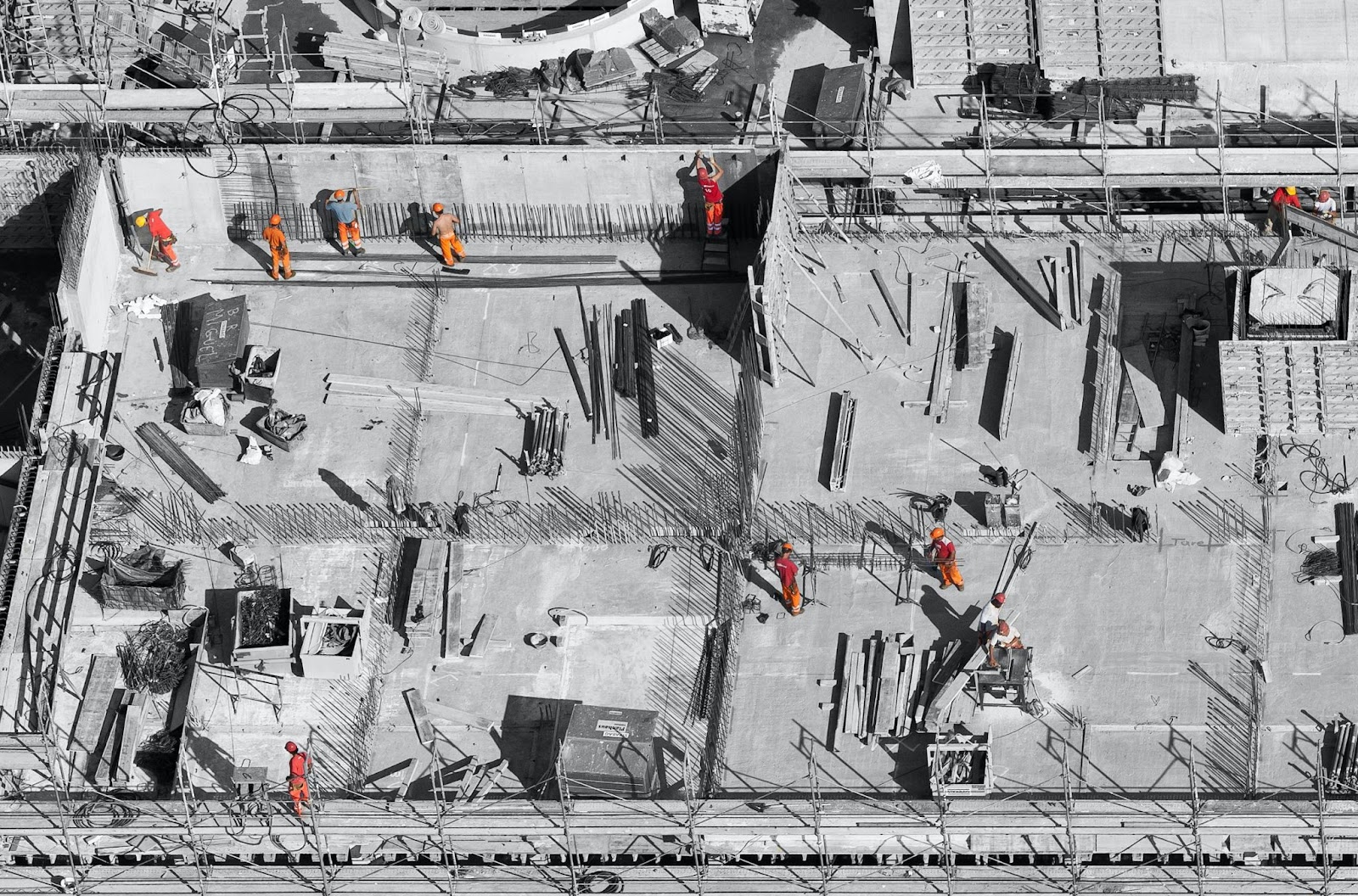You’ve been told over and over again how important communication is to the success of your construction project, but you may still feel like you don’t really understand why it’s so important.
By the end of reading this article, you’ll have all the answers about the importance of communication in the construction industry. You’ll also understand some of the main culprits that may be causing poor communication on your jobsite.
Note: For actionable steps around how to start improving communication on your construction projects, be sure to read the second part of this series.
Why is Communication Important in Construction?
- It helps all parties understand the project status
- It helps you spot errors faster
- It allows you to be proactive vs reactive
- It breaks down silos
- It increases productivity
- It provides greater accountability
- It promotes a safer work environment
- It boosts worker morale
- It keeps costs down
- It keeps everyone on the same page
- It improves your reputation
Learn the 3 steps that help improve communication issues on your project here.
It helps all parties understand the project status
Clarity on a construction site can be difficult to achieve with trades unsure about what they should be doing and when they should be doing it.
This lack of clarity can lead to trades turning up at the job site early or late. Turning up earlier than needed will mean you have to pay them for idol time whereas if they’re late, you end up paying through delays and wasted time.
On top of this, without clear communication, it becomes almost impossible for you as a project manager to establish the current status of your project, resulting in delayed decision-making.
In this situation, it can be hard to win, but good communication will help ensure that everyone understands both the overall status of the project - what’s been done and what’s not been done, as well as the individual role they play in getting the project to completion.
It helps you to spot errors faster
Picture this: a subcontractor spots an error while completing a job. They mention this in their team’s Whatsapp group with the expectation that ‘someone will resolve it’. The issue is, nobody ever does.
This unfortunate but common scenario leads to all kinds of onsite chaos that have to be reworked later down the line. Walls have to be reopened to reinsert the wiring that was initially missed, faulty fittings are installed only to later have to be removed and replaced - the list goes on…
{Note: Having robust business insurance ensures that companies are protected against unforeseen financial losses arising from miscommunication-related incidents. Effective business insurance not only provides coverage for accidents and delays but also helps manage legal expenses and employee-related costs, safeguarding the overall financial health of the business. For comprehensive coverage tailored to your needs, consider business insurance by ContractorNerd.}
Without proper communication, errors and mistakes are easily missed and if addressed too late, can impact safety and lead to delays.
Facilitating good communication from the onset will help you to resolve errors much faster and in many cases, even prevent them in the first place. (Take a look at the second part of this article to learn how to improve communication management in construction).
It allows you to be proactive vs reactive
When you don’t have a grasp on the various moving parts of a construction project, rather than proactively working to prevent fires, you’ll spend your time fighting them.
If much of your time is spent on non-value-generating activities like chasing information and resolving issues that could have been avoided, poor communication may be the cause.
As we established earlier, good communication will help you to understand your project better and a by-product of this is that you will be able to take a proactive approach to your projects to understand issues as soon as they arise and make better decisions faster.
It breaks down silos
Silos are pretty standard in construction but they can be harmful to the success of the project. Poor communication is what keeps these silos going with each team working independently and this prevents information from flowing freely.
You’ll find that improving communication across your jobsite will have a direct impact on these silos and this will help dramatically reduce confusion and increase efficiency.
It increases productivity
Building on the last point, weak communication also leads to reduced productivity. When the flow of communication is slow, it slows down the entire project and makes decision-making take a lot longer than it needs to.
Boosting productivity and delivering your project on time and under budget can be heavily influenced by the quality of communication on your jobsite.
It provides greater accountability
Not understanding who did what on a project can lead to headaches around claims management and proving compliance with building safety regulations later down the line.
Proper communication management will help you to understand who completed what aspect of a job when an issue arises, so there is clear accountability on your jobsite.
It promotes a safer work environment
Whether it’s working at height, dangerous substances, or large on-site vehicles, it’s no secret that the construction site has plenty of potential hazards.
The chances are, everyone working on your site is an expert trained to appropriately deal with these hazards. Yet, despite this, accidents still happen and this is often because of a lack of awareness that other parties have about the onsite risks at a given moment in time.
Good communication helps to minimise the risk of something going wrong by helping people to quickly understand the potential threats onsite.
It’s good for worker morale
This industry can be stressful. Providing a way for your team and subcontractors to clearly communicate their workloads will help increase morale.
You can also reduce the chances of poor performance due to being ‘left in the dark’ by ensuring that your team leads are involved in discussions and the process behind each decision. In return, they will feel more invested, more motivated, and more driven to work hard.
It helps keep costs down
One of the biggest issues with poor communication is the increase in costs that occur as a result.
If miscommunication leads to any serious incidents or accidents, this can result in higher staff turnover, higher costs for hiring people to cover absent workers or hiring new staff, higher insurance premiums, and increased legal costs.
Similarly, delays can result in major additional costs, such as higher labour fees and higher rental fees for machinery or tools.
Even bad communication surrounding project specifics, like site-specific information, quantities, or materials, can lead to too many of one thing getting purchased or the wrong product getting chosen and replaced.
Effective communication is one of the best ways to keep costs down on a construction project (Take a look at this guide to learn how you can secure your margins on your projects). It prevents workers from turning up on the wrong day, reduces the chances of paying for additional staff and keeps your costs within your planned budget.
It helps keep everyone on the same page
You may have learnt the hard way that without a shared understanding of the project goals and objectives, there can be substantial misunderstandings between the different stakeholders.
This lack of alignment can harm the project, as various teams focus on completing different priorities.
When workers are clear on what is expected of them and by what deadline, goals and objectives are quickly met and projects stay on schedule.
It boosts your reputation
Finally, poor communication in construction almost always results in disruptions, delays, conflicts, and even accidents, which can hurt your company's reputation. This might not seem all that impactful at first, but over time, if you gain a reputation for the wrong things, you will find it hard to win new projects.
On the flip side, if you instil clear and effective communication, your jobs are much more likely to get achieved on schedule, with minimal issues. Over time, this will help to increase your reputation and help you win plenty of work in the future.
3 common causes of poor communication in the construction industry

If your construction company is experiencing poor communication, one of the first things you want to do is try and establish why this issue might be occurring.
Here are some of the 3 most common factors that can prohibit effective communication in construction.
Siloed and fragmented workforce
From part-time and full-time workers, to temporary workers, contractors, subcontractors and many others; construction sites tend to have large numbers of workers at any given time.
Each group has their own roles, skills, responsibilities, and experience levels and with so many different moving parts in a workforce, it is easy for communication to break down.
If each aspect of a project has its own way of communicating on a jobsite, it can lead to teams working in fragmented or siloed ways which can be detrimental to the project's success.
Multiple ways of reporting and tracking
Using several different mediums to report on and track a project can result in an unclear understanding of what is happening on a job site.
This lack of understanding leads to time wasted trying to piece together data from various sources.
Remote project leaders
Whenever a project occurs when senior management works away from the job site, it can be much more complicated to ensure decisions made are implemented on the site effectively.
If project leader information is not communicated effectively, it can lead to significant delays, misunderstandings, or as a worst-case scenario, an unsafe work environment.
That is why it is so important to have a clear and precise method of communicating essential information top-down.
Importance of communication in construction: final thoughts
It's clear that communication is crucial to any construction project’s success.
Here at Sablono, we understand that communication in construction is not an easy aspect to master. But we decided to make it that little bit easier (read our article on how to improve communication in construction here).
Sablono is an all-encompassing digital platform specifically designed to solve the construction industry's communication issue. Here’s how:
- Transparent status reporting that is immediately accessible with real-time, structured information to get a clear understanding of a project and get it right the first time.
- True accountability with a fully accountable audit trail of what has been done, when it has been done, who has done it, who signed it off and more.
- One centralised system. The traditional way work working involves multiple trackers on a project. Sablono provides a central, connected system to bring the entire construction supply chain into one place.
- Connects supply chain partners. We provide a digital platform that connects them all in real time and can be used as a workflow or process management platform. This way, everyone knows exactly what they’re expected to do at any time and can easily document their activities.
Get a demo of Sablono to learn how we can help you improve communication on your projects.


